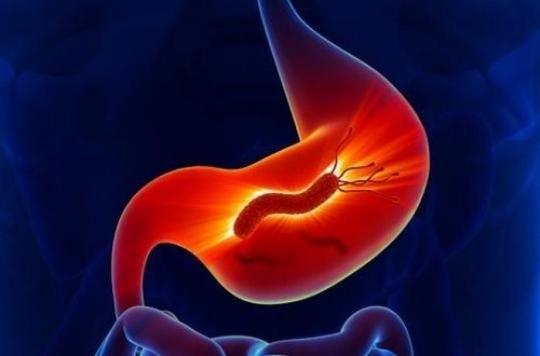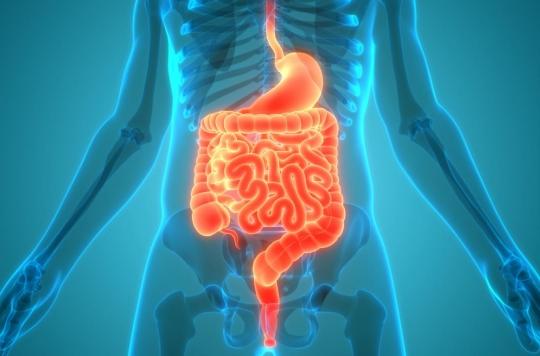In patients with early-stage stomach cancer, a new study reveals that treatment for Helicobacter pylori infection, a major risk factor for this cancer, reduces the risk of 2nd gastric cancer and atrophy glandular.

Patients with early stage stomach cancer (gastric cancer) limited to the gastric mucosa (or submucosa) usually have glandular atrophy of the gastric mucosa and are at high risk of subsequent development of new gastric cancer.
Korean researchers report in a recent study that in these patients, treatment of Helicobacter pylori infection, one of the leading risk factors for gastric cancer, leads to lower rates of 2nd gastric cancer, i.e. say diagnosed after treatment of primary cancer (“metachronous” cancer), as well as less glandular atrophy. Their results are published in the NEJM of March 22, 2018.
Study shows Helicobacter pylori therapy effective in lowering rates of metachronous gastric cancer. Full trial results: https://t.co/bgolLjSmzl pic.twitter.com/iZl2QZbMxI
– NEJM (@NEJM) March 21, 2018
Helicobacter pylori and incidence of gastric cancer
Until then, the long-term effects of treatment eradicating Helicobacter pylori remained poorly evaluated vis-à-vis the histological improvement of gastric mucosa biopsies and prevention of the risk of 2nd gastric cancer.
A team of Korean researchers therefore conducted a randomized, double-blind, controlled trial including 396 patients after endoscopic resection of early-stage gastric cancer or high-grade adenoma.
194 of them received treatment to eradicate the bacteria Helicobacter pylori and 202 a placebo. Their follow-up lasted 5.9 years. The objective was to determine the risk of 2nd gastric cancer during a follow-up of one year or more and the improvement of the glandular atrophy.
Less recurrence and less glandular atrophy
In practice, 14 patients under treatment (7.2%) developed a second gastric cancer against 27 patients (13.4%) under placebo. Among the 327 patients in whom histological analysis was performed, 48.4% of patients on treatment and 15% of patients on placebo had improvement in glandular atrophy.
Note that no serious adverse event was observed. In contrast, mild adverse events were more common in treated individuals.
The researchers therefore conclude that patients with early gastric cancer develop less 2nd gastric cancer when they are treated for an infection with Helicobacter pylori and glandular atrophy of the gastric mucosa is also less common compared to untreated patients. It remains to be seen whether these results involve treating Helicobacter pylori systematically in patients suffering from stomach cancer.
New Quick Take video: Treating Early Gastric Cancer https://t.co/pZYUxStOOv pic.twitter.com/gUB2yKI9Vj
– NEJM (@NEJM) March 21, 2018
.













